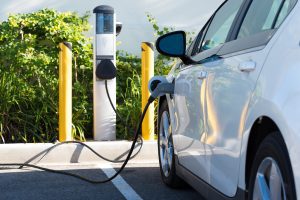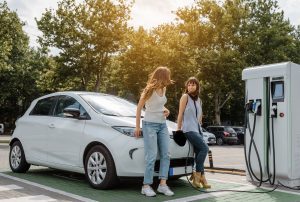Electric cars are more complex than your traditional petrol or diesel car. Instead of relying on a combustion engine, EVs are powered by advanced electric batteries. These batteries have an optimum temperature in which they work best but how can the weather affect your EV? Let’s face it, living in the UK means there’s more cold weather than hot but knowing how your electric car performs in all types of weather is important.
Understanding EV car range.
In this guide, we’ll often talk about electric car range, but what does it actually mean? Electric car range refers to how many miles your EV can travel on a single charge. Range anxiety is a term used to describe the worry EV drivers have that their eclectic car will run out of range before they reach their destination. The EV range is calculated by multiplying the battery capacity by the kilometres per kWh it can travel. Your driving range won’t the be same every time and you may find you get more miles out of your EV than other journeys. There are a few factors which can affect your EVs performance and range and one of those is the weather.
Does cold weather affect electric cars?
There are a number of ways in which the cold weather can affect your EV. EV batteries have an optimal temperature at which they perform best. Colder outside temperatures can slow down EV batteries and lead to a lower range and lower efficiency.
In the winter months, you’ll also use more heating to ensure everyone is warm and cosy on board. Using your heating system increases the amount of energy you use and puts more pressure on the internal battery, leading to a reduced electrical range.

Winter driving can make your vehicle work harder. Adverse weather conditions such as snow and ice can increase resistance and make you use more energy than you normally would. If you’re looking for a car that can handle winter weather, the Tesla Model 3 is one of the best electric cars you can buy for snowy conditions!
Does hot weather affect electric cars?
Living in the UK means we’re not used to the hotter weather but EVs are manufactured to work better with hot weather rather than cold. Modern EVs come with cooling systems which help to keep your car cool but don’t affect the range too much. When comparing electric car ranges, you should also consider how efficient they are at ensuring the battery doesn’t overheat. Electric car charging times may be longer when it’s hotter weather too.

Does the rain affect how your EV performs?
Yes, the rain can affect how well your electric car performs. However, it’s no different to how the rain would affect a petrol or diesel car. When the road is wet, you should take more care when driving. Roads can be slippy and your stopping distances will increase. You will also use more energy if using windscreen wipers and headlights to ensure good visibility of the road ahead. Your car works harder when driving in the rain because the rolling distance increases.
Can you charge an electric car in the rain?
Charging your EV in the rain is perfectly safe! We’ve long known water and electricity don’t mix but electric car chargers have been designed to withstand all weather conditions. There are no precautions you need to take when charging your electric car in the rain and it works the same for any weather. It may not be as fun for you to be out in the rain but your EV charger will hold out against any weather.
Related Content:

What is the cheapest way to charge an EV?

Best electric cars to buy.
